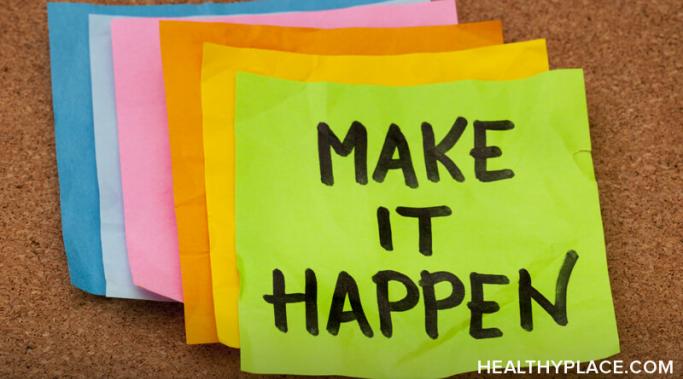"Ghosting" is the act of abruptly cutting off all contact with another person without warning, of disappearing from their life without explanation and without a trace. It has been characterized as a cruel and cowardly practice that has a devastating impact on the "ghostee," but I would counter that in some cases, ghosting is the only way to distance yourself from a toxic and unhealthy relationship and the only way to safeguard your mental health when no alternative presents itself.
Depression Coping Skills
We're taught that playing make-believe is for children -- that as adults, our feet should be firmly rooted in reality. But when dealing with reality becomes too much to handle, a little foray into childish fantasy can be incredibly comforting and very beneficial for our mental health.
The iceberg theory is a frequently cited model of behavior which states that a person's behavior can only be properly understood in the context of the factors that caused it. What a person does is "the tip of the iceberg"-- what we don't see are the emotional, social, cultural, and other factors that lie beneath the surface and cause that behavior.
Parenting is always a divisive topic. Every generation thinks it has found the trick to child-rearing, and every new parent vows to avoid the mistakes their own parents made in raising them. Attitudes towards discipline, attachment, nutrition, education, and play are constantly evolving, but one thing that never seems to change is the idea that crying is a bad thing and that the goal when a child cries is to get them to stop at any cost. This attitudinal hangover from the days when children were to be seen but not heard is incredibly worrying and something we should resist as parents in order to safeguard our children's mental wellbeing.
I missed my last scheduled blog post due to illness, but in truth, I was relieved because aside from the gastric flu wreaking havoc with my digestive system, I didn't have anything to talk about. I was (and am) doing well. When I sat down to write this week's piece, I had a similar bittersweet realization. This blog is "Coping with Depression," but at the moment, I don't feel as though I am "coping" with anything in particular. I am, for all intents and purposes, recovered from depression. Does that mean I should give up writing this blog? I think not.
Those empty "inspirational" quotes are a particular pet peeve of mine. Facebook and Instagram are littered with them, and the more of them I see, the more aggravated I get. It's not just that the same ones seem to do the virtual rounds every few months ("Live, Laugh, Love" anyone?), it's that they have become so ubiquitous that they feel insincere.
We all want to feel like we are contributing to the world, but as the world grows more competitive, it can be hard to feel that we are doing "enough"— as employees, partners, parents, or just as members of society. This has resulted in a culture of "competitive tiredness," in which we measure our worth according to how exhausted we are and seek recognition of that exhaustion from the people around us as proof that we are "doing enough." It causes friction in personal relationships and is terrible for our mental health. So why have we become so invested in the idea that to be fulfilled, you also have to be knackered?
I have an idea for a children's book, but anxiety-induced procrastination is in the way. I've been saying for years that I want to write a book, and last week inspiration struck. I am telling you this because I know that if I don't, the idea will remain just that: an idea. And I will continue to be what I've been for years: someone who says they want to write a book, writes a few chapters, then leaves them to gather dust in a long-forgotten folder on a laptop. I am a pathological procrastinator, but I believe I have found a way to tackle my anxiety-induced procrastination and share it here in the hopes that it will help you, too.
"Gaslighting" is a form of emotional abuse in which the abuser makes the victim question their perception of reality in order to undermine their feelings and avoid accountability for abusive behavior. It is cruel and inexcusable to deliberately treat another person this way, but is it possible to do it unconsciously? Is it possible to gaslight someone with nothing but good intentions? I believe so. In fact, I believe unconscious gaslighting is a trap into which it is easy to fall when you are caring for a person with a mental illness.
I have been lying. I have spent the last six months writing this blog about the importance of letting go of shame and talking openly about the realities of living with depression, yet recently in my private life, I have forgotten to practice what I preach. I have become too invested in the idea of myself as someone who has "recovered" and stopped acknowledging my bad days. This is both insincere and unhealthy. Bad days will happen, and learning how to deal with them is a vital part of depression recovery.









